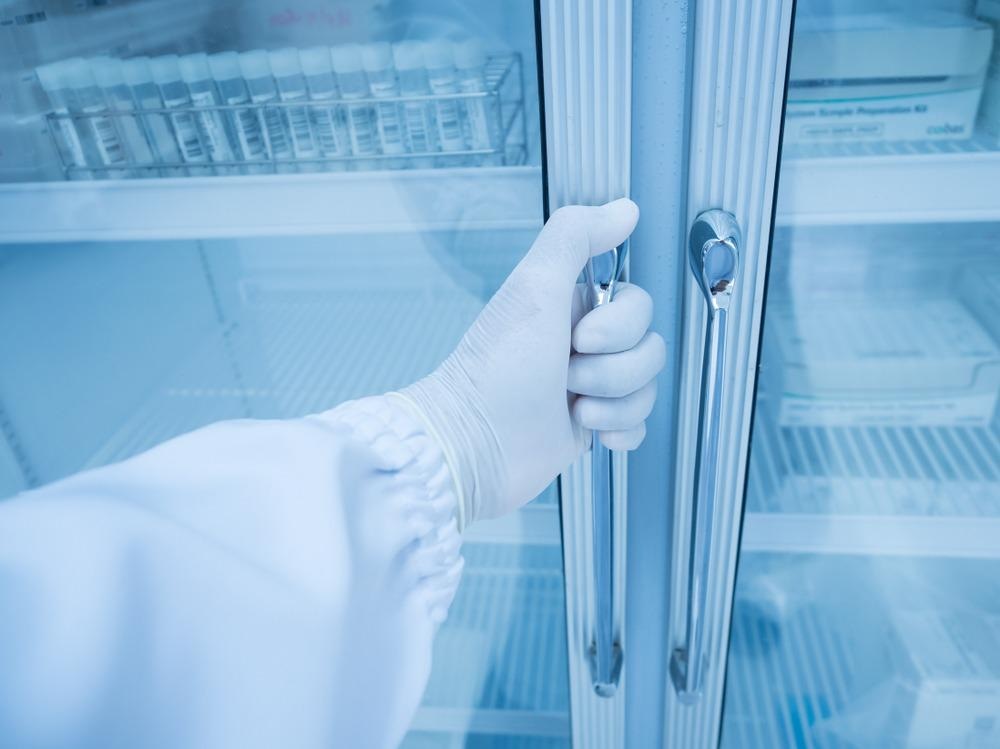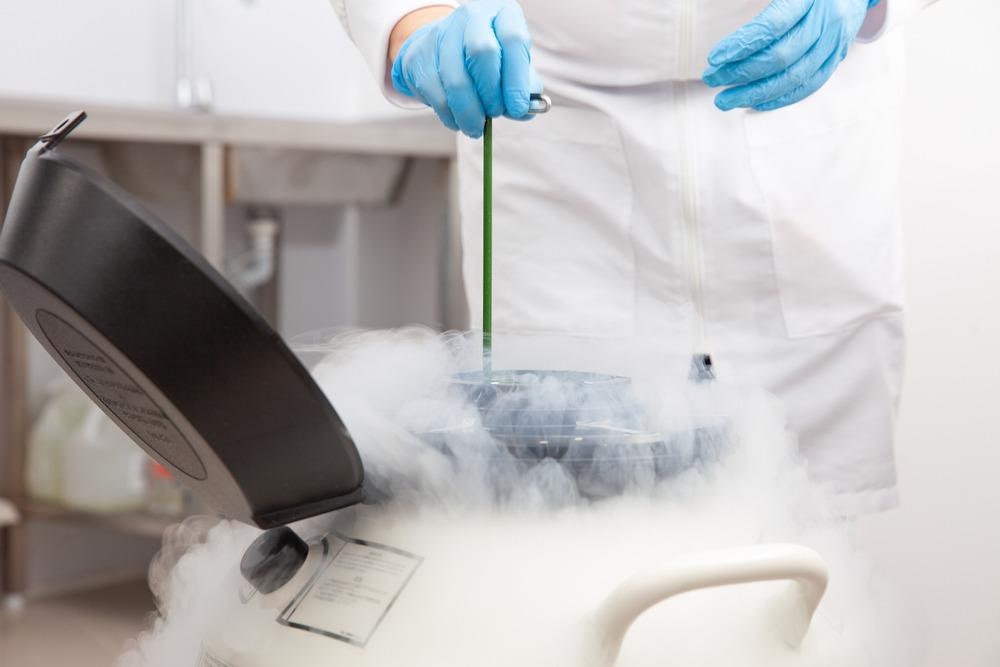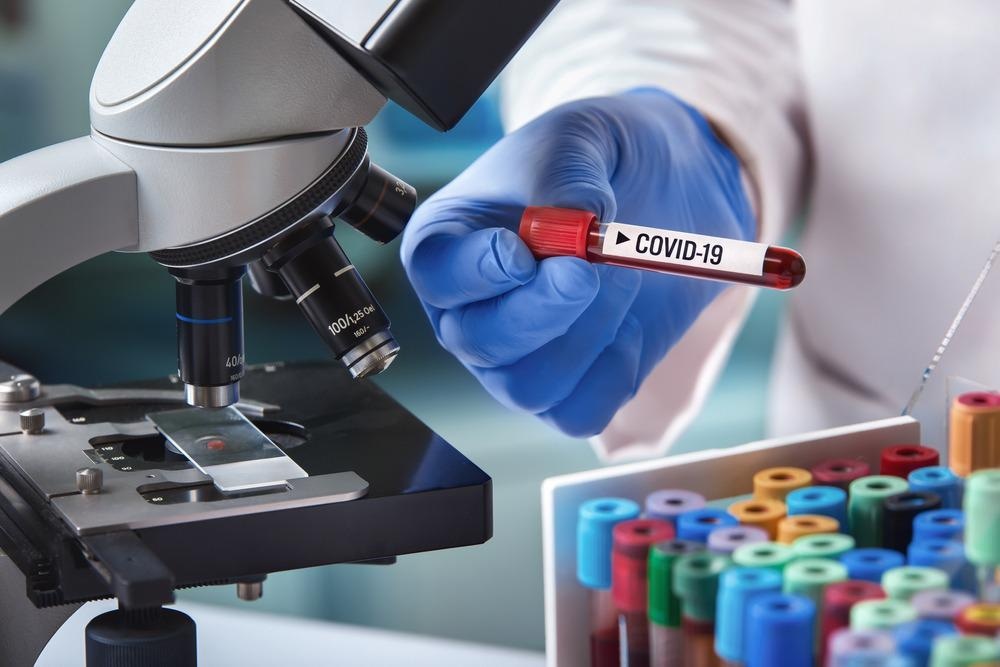Produced in Partnership with BioDockDec 22 2021
In this interview, we speak to Matt Mosey, an account manager for BioDock, about the importance of sample storage and its many benefits for researchers.
Please could you introduce yourself and tell us about your role at BioDock?
As an Account Manager for BioDock, my role is to ensure that the service we provide to our clients aligns as closely as possible to their requirements. Each solution we deliver to our clients is bespoke to their individual specifications, from storage conditions to sample and vessel transport.
Day to day, my role focuses on project management from a logistical point of view, specialist equipment procurement, client onboarding, cold chain shipping organization, and various other ad-hoc services that our clients request.
Can you give us an overview of BioDock and its aims?
BioDock aims to provide bespoke solutions to hospitals, research groups, and other organizations within the life sciences sector. These solutions often focus on solving three primary problems faced within the industry; sample storage space, sample storage contingency, and regulatory compliance.
To tackle these issues, we utilize our state-of-the-art facility in Nottingham to provide a range of cold storage solutions complemented by our bio-services portfolio (aliquoting, sample picking and packing, sample destruction, etc). Our facility is opposite the University of Nottingham on a dedicated science and technology park. The building allows for continuous expansion and is maintained to the highest degree; demonstrated by our dedication to quality assurance and regulatory compliance.
Our systems are 21 CFR Part 11 compliant and we regularly reinvest in new equipment and re-evaluate internal processes to continuously improve the service we provide to our clients.
Established as an industry leader, BioDock has become well known in the scientific community as being a professional and solution-focused service provider with great customer service and expertise.

Image Credit: Komsan Loonprom/Shutterstock.com
You offer state-of-the-art storage facilities for biological materials across the UK. Can you describe how your storage facilities work and how you ensure samples stay high-quality?
Samples are stored precisely to the strict criteria stipulated by each client. We currently store samples under a range of temperature conditions including ambient, -80, and -196. We also offer to store a client’s samples in their own storage vessel, a dedicated rental storage vessel, or shared storage vessels; depending on regulatory compliance measures. This flexibility allows clients to rent useable storage space in the confidence that if they require more space, it is available.
Our dedication to cold chain integrity and licensing requirements enables us to be confident that samples stored with BioDock continue to maintain high quality. This is especially essential when storing stem cell products on behalf of multiple NHS trusts across the UK, who rely on these samples for potential life-saving therapies.
A commitment to continuous improvement and exceeding regulatory requirements ensures we provide a high-quality service regardless of the client's needs.
What types of biological materials can you store at your facilities?
We are able to store a wide array of biological materials including Human Tissue Authority relevant material, Human Fertilization and Embryology Authority relevant material, Genetically Modified Organisms, master cell lines, animal and plant materials, and reference samples generated during research.
Our dedication to quality assurance also means we are constantly striving for further accreditations and licenses.
What are some of the advantages of using storage facilities to store samples for hospitals and research institutions?
There are three primary advantages of using a third-party storage facility, such as BioDock, to store samples on your behalf.
The first is sample safety and contingency. Many of our clients hold valuable biological materials such as master cell lines which are essential to drug development or commercial longevity; by storing with a third party, clients can protect these valuable samples in case a catastrophe strikes on-site.
The second is freeing up valuable sample storage space. As archival sample inventories grow, so does the need for additional storage space. This is often not possible in small research organizations or hospitals which were not built with these requirements in mind. By moving samples off-site, space is made available for new samples to be stored. If the samples are required, BioDock can act quickly to return the samples using our dedicated medical courier.
The third is that by removing large pieces of expensive to maintain equipment from the facility, more time and resources can be allocated to research and patient care. In particular when dealing with large Liquid Nitrogen supply lines and tanks which require regular maintenance and monitoring. BioDock has decades of experience managing liquid nitrogen supply tanks and therefore the client can be confident their vessels are in safe hands.

Image Credit: Anamaria Mejia/Shutterstock.com
Each client will have different requirements for their samples such as temperature requirements, logistic requirements, and the number of samples. How do you cater to each individual client's needs?
Prior to signing any paperwork, we carefully consider the client’s problem and provide a tailored solution. Utilizing extensive industry knowledge, we provide a simple yet efficient plan to solve the issue quickly and without unnecessary cost.
With over twenty years of industry knowledge, BioDock works with industry-renowned suppliers to provide a highly bespoke service to cater to each client’s needs. Keeping up to date with the latest developments in equipment in the industry allows us to provide a solution that utilizes the most up-to-date systems.
At BioDock, you also offer contingency planning. What is this and why is it such an important aspect of the storage of biological materials?
Regulatory bodies are becoming increasingly aware of the need for contingency planning to demonstrate the ability to relocate samples in the event of an emergency.
As standard, we first conduct a free-of-charge site disaster recovery assessment, to discuss your existing contingency plans. This impartial review is the first step to highlight potential improvements and any previously overlooked requirements.
We are able to assist in preparing for a wide range of circumstances, including:
- Natural Disasters – such as flooding
- Business Continuity Risk – such as insolvency
- Supply Risks – key supplier inability to deliver
- Facility Risks – such as fires or power failure
Contingency planning is suitable for any institutions storing valuable and irreplaceable biological samples, including our existing clientele of multiple NHS trusts, research centers, and private hospitals. Behind the scenes, we conduct regular site reviews to ensure the service continuously meets the client’s needs.
How has the ongoing COVID-19 pandemic highlighted the need for storage of biological materials?
Following the beginning of COVID-19, research organizations, in particular, turned to BioDock to provide safe and secure storage for their valuable master cells lines. By splitting these valuable samples across multiple sites, backup options are created in the event of sample loss.
Additionally, BioDock has helped support research organizations in the storage of COVID-19 related archival research samples, potentially needed in the future for reference and to further understand the virus.

Image Credit: angellodeco/Shutterstock.com
Do you think companies with biological samples will increasingly turn to storage facilities as science and technology continue to develop?
As research organizations continue to create new innovative pharmaceutical products and hospitals continue to offer a range of therapies involving the application of clinical samples, we are confident that companies will turn to BioDock to provide solutions to their storage pressures.
Have you got any exciting upcoming projects at BioDock?
We are soon to launch a brand-new website and expand our Bio services portfolio; providing clients with a turn-key solution instead of shipping samples between biorepository and sample testing providers. We are currently also working on several bespoke cell and tissue processing services in the cell and gene therapy industry – due to launch in early 2022.
What do you think the future looks like for sample storage within the science sector?
Each year suppliers introduce new and innovative pieces of equipment to the market which allow biorepositories to further improve their processes and service.
In particular, temperature monitoring systems have made huge leaps in interface useability and accessibility. In the future, we expect further equipment developments and introductions.
Where can readers find more information?
I would recommend following our LinkedIn page for regular updates on Biodock’s service options and developments - https://www.linkedin.com/company/biodock
We can also be contacted by emailing [email protected] or call us on 0115 907 8613 and one of our cryostorage specialists will be in touch.